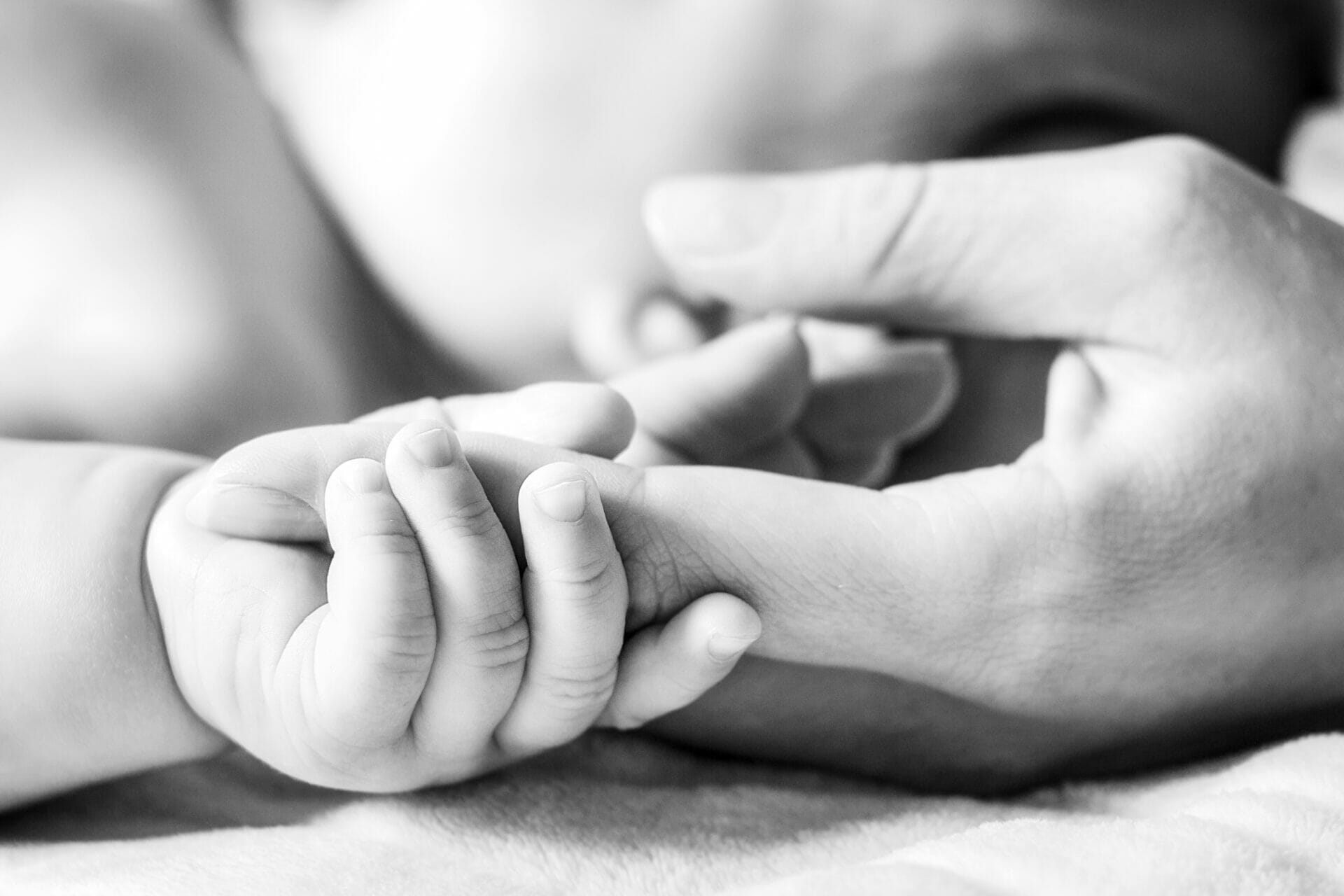NHS England has ordered an independent review of Nottingham University Hospital regarding its alleged maternity care failings, according to a recent BBC report. The review is set to look at a staggering 1,700 cases in Nottingham alone, making it the largest ever to be carried out in the UK.
Whilst globally the UK remains a relatively safe place to give birth,[1] the BBC reports that 207 claims were made between 2005-2006 and 2020-2021 against the hospital’s maternity services, including 36 for cerebral palsy, 26 for stillbirths, and 24 for brain damage.
Donna Ockenden, who led the Ockenden Maternity Review into the care provided by Shrewsbury and Telford Hospitals NHS Trust, is conducting an active investigation into the maternity services at Nottingham University Hospital.
Pogust Goodhead’s experienced team of legal professionals are specialists in litigating birth injury claims and have shared their stance on the highly anticipated report below. If you are considering making a birth injury claim, please reach out to our team.
Avoidable injuries and deaths
The deaths and injuries of dozens, including stillbirths, neonatal deaths, newborn brain damage, harm to mothers, and mothers who died[2], will be a significant focus of the upcoming report.
The parents of a baby that was stillborn at the trust in 2016 stated: “For too long we have been fighting to be not just heard, but for action to be taken, and for there to be accountability… We deserve to learn who knew what and when, why it was allowed to continue; and how the trust avoided scrutiny for so long.”[3]
Another parent claimed that a ‘culture of intimidation and lies led to failings in care’ and explained how, for them, it was ‘the hospital experience from hell.’[4]
According to the BBC, a review was underway in Nottingham, but it was criticized because ‘its remit was too narrow and it was not independent enough.’
Far from being isolated or unique to Nottingham, the reality is that, sadly, these failings have been replicated across England, perhaps most famously highlighted in the independent maternity review of Shrewsbury and Telford NHS Trust.
Shrewsbury & Telford NHS Trust
The independent maternity review of Shrewsbury and Telford NHS Trust focused on all reported cases of maternal and neonatal harm between the years 2000 and 2019. These included cases of stillbirth, neonatal death, maternal death, hypoxic ischaemic encephalopathy (HIE), and other severe complications in mothers and newborn babies.[5]
Parents who lost their daughters at the trust shared that they had an ‘unrelenting commitment to ensuring their daughters’ lives were not lost in vain.’[6]
They undertook their own investigations to highlight the deaths of the newborns, which was instrumental in establishing the review.
The catastrophic failings at the NHS trust meant there were at least 201 babies and nine mothers that might have survived with better maternity care.[7]
East Kent Neo Natal Services & Morecambe Bay Hospital
In a similar inquiry published in 2022, led by Dr Kirkup in East Kent, it was concluded that, had maternity care been delivered to nationally recognized standards, the outcomes could have been different in 97 of the 202 individual cases assessed by the panel (48%), and the outcome could have been different in 45 of the 65 baby deaths assessed (69%).[8]
The report follows Dr Kirkup’s independent investigation commissioned by NHS England and NHS Improvement in response to the alarming number of avoidable baby deaths and concerns raised about the quality and outcomes of maternity and neonatal care at East Kent in recent years. Dr Kirkup investigated the circumstances, management, delivery and outcomes of care provided by the maternity and neonatal services at East Kent since 2009.
The findings are shocking, and failures are identified at every level within the maternity services, from what happened to women and babies under the care of the maternity units, the Trusts response – or lack of – including at board level, and the failure to learn lessons.
The East Kent Trust accepted the report findings in full. The Board said:
“This is a shocking account – in the words of its author both deplorable and harrowing. It describes a litany of failures and missed opportunities which have left families in our local communities devastated and with emotional scars that will never heal. We have said sorry on behalf of this whole Board and I say sorry again now, but of course saying sorry is meaningless unless we are prepared to learn lessons and bring about change.
“It is a shocking report not only because of clinical failings and technical mistakes that were made time and again but also because of the way our clinical staff behaved towards mothers and their families and the way management and the Board engaged in a repeated ritual of defense and denial.
“Initial errors were made on the front line – poor clinical decisions leading to sub-optimal care, failures to escalate, failures to respond when escalation did take place, poor inter professional relationships, mutual recrimination, and an apparent inability to listen to mothers and their families. But the failure goes beyond this. The way we reacted when things went wrong compounded those front-line errors.
“Too often the senior levels in this organization, including the Board, were in effect complicit in cover-up and denial. The instinct to defend the reputation of the organization trumping the need to question and understand what had actually been going on…”
Dr Kirkup also led the inquiry at Morecambe Bay Hospital in 2015, where failings led to the deaths of 16 babies and three mothers. He stated that care consistently fell way below the required standard, causing untold harm and suffering to numerous families.[9]
“Babies are dying, women are dying, through bad care, and pure neglect,”[10] said one affected party.
Intersectionality
It is essential to note that there is an intersectionality[11] to the failings, as highlighted in the damning Dispatches documentary: The Black Maternity Scandal.[12]
In the UK, black women are four times more likely to die during pregnancy and childbirth, and up to six weeks after, than white women. Whilst the government noted that the NHS ‘acknowledge and regret this disparity,’[13] incomprehensibly they have ‘no target to end the disparity in maternal mortality.’[14]
A Global Crisis
Globally, the data is staggering: in 2020, an estimated 287,000 women died from a maternal cause[15], and 5.1 million babies were stillborn or died in their first month of life.[16]
According to the latest estimates in an early 2023 UN report: “Every two minutes, a woman dies during pregnancy or childbirth.”[17] This report reveals alarming setbacks for women’s health over recent years, as maternal deaths either increased or stagnated in nearly all regions of the world, including the UK.
The statistics show this trend is mirrored in neonatal death figures, which have also virtually stagnated.[18]
Pogust Goodhead’s experience in birth injury claims
There is a clear picture of a maternity care in crisis in the UK that is having catastrophic life-changing consequences for families and loved ones of those affected.
Those responsible must be held to account; those who have experienced harm and loss deserve justice.
No one else should suffer the same harm and devastating consequences of avoidable death or injury to babies and mothers. Lessons need to be learnt.
Pogust Goodhead has a team of solicitors who are experienced in litigating birth injury claims. If you are considering making a birth injury claim and would like some further information, please get in touch with our legal team via our website or alternatively call us for a free initial confidential chat.
[1] World Health Organization (WHO) country data sets available at Maternal health (who.int) Accessed 11.07.23
[2] BBC news 10.07.23 Nottingham maternity review to become UK’s largest Nottingham maternity review – BBC News Accessed 11.07.23
[3] BBC news 10.07.23 Nottingham maternity review to become UK’s largest Nottingham maternity review – BBC News Accessed 11.07.23
[4] Parents of baby who died at Nottingham City Hospital say it was ‘the hospital experience from hell’ | ITV News Central Published 12 July 2023, Accessed 12 July 2023
[5] Maternity Services at the Shrewsbury and Telford Hospital NHS Trust OCKENDEN REPORT – MATERNITY SERVICES (publishing.service.gov.uk) Accessed 12 July 2023
[6] Maternity Services at the Shrewsbury and Telford Hospital NHS Trust dated 10 December 2020, OCKENDEN REPORT – MATERNITY SERVICES (publishing.service.gov.uk) Accessed 12 July 2023
[7] Shrewsbury maternity report: Uncovering the biggest NHS maternity scandal – BBC News dated 2 April 2022 Accessed 12 July 2023
[8] Maternity and neonatal services in East Kent: ‘Reading the signals’ report – GOV.UK (www.gov.uk) dated 19 October 2022, Accessed 13 July 2023
[9] East Kent maternity failings led to 45 baby deaths, damning report reveals | The Independent dated19 October 2022, Accessed 12 July 2023
[10] East Kent maternity failings led to 45 baby deaths, damning report reveals | The Independent dated 19 October 2022, Accessed 12 July 2023
[11] The concept of intersectionality describes the ways in which systems of inequality based on gender, race, ethnicity, sexual orientation, gender identity, disability, class and other forms of discrimination “intersect” to create unique dynamics and effects. For more information on this concept please refer to https://www.intersectionaljustice.org/what-is-intersectionality
[12] The Black Maternity Scandal: Dispatches – Channel 4 dated 29 March 2021, viewed 11 April 2023
[13] House of Commons House of Lords Joint Committee on Human Rights Black people, racism, and human rights Eleventh Report of Session 2019–21 at 45. https://committees.parliament.uk/publications/3376/documents/32359/default/
[14] House of Commons House of Lords Joint Committee on Human Rights Black people, racism and human rights Eleventh Report of Session 2019–21 at 45. https://committees.parliament.uk/publications/3376/documents/32359/default/
[15] Trends in maternal mortality 2000 to 2020: estimates by WHO, UNICEF, UNFPA, World Bank Group and UNDESA/Population Division A woman dies every two minutes due to pregnancy or childbirth: UN agencies (who.int) published Feb 2023, Accessed 11.07.23
[16] Trends in maternal mortality 2000 to 2020: estimates by WHO, UNICEF, UNFPA, World Bank Group and UNDESA/Population Division A woman dies every two minutes due to pregnancy or childbirth: UN agencies (who.int) published Feb 2023, Accessed 11.07.23
[17] Trends in maternal mortality 2000 to 2020: estimates by WHO, UNICEF, UNFPA, World Bank Group and UNDESA/Population Division A woman dies every two minutes due to pregnancy or childbirth: UN agencies (who.int) published Feb 2023, Accessed 11.07.23
[18] CME Info – Child Mortality Estimates Accessed 12.07.23









